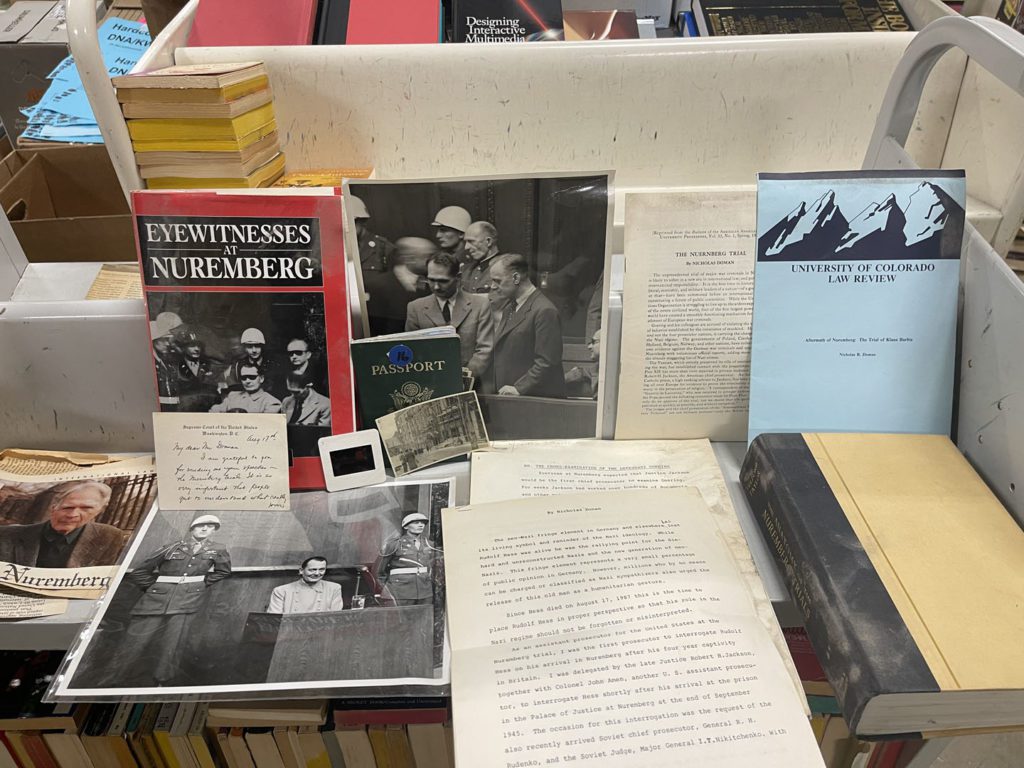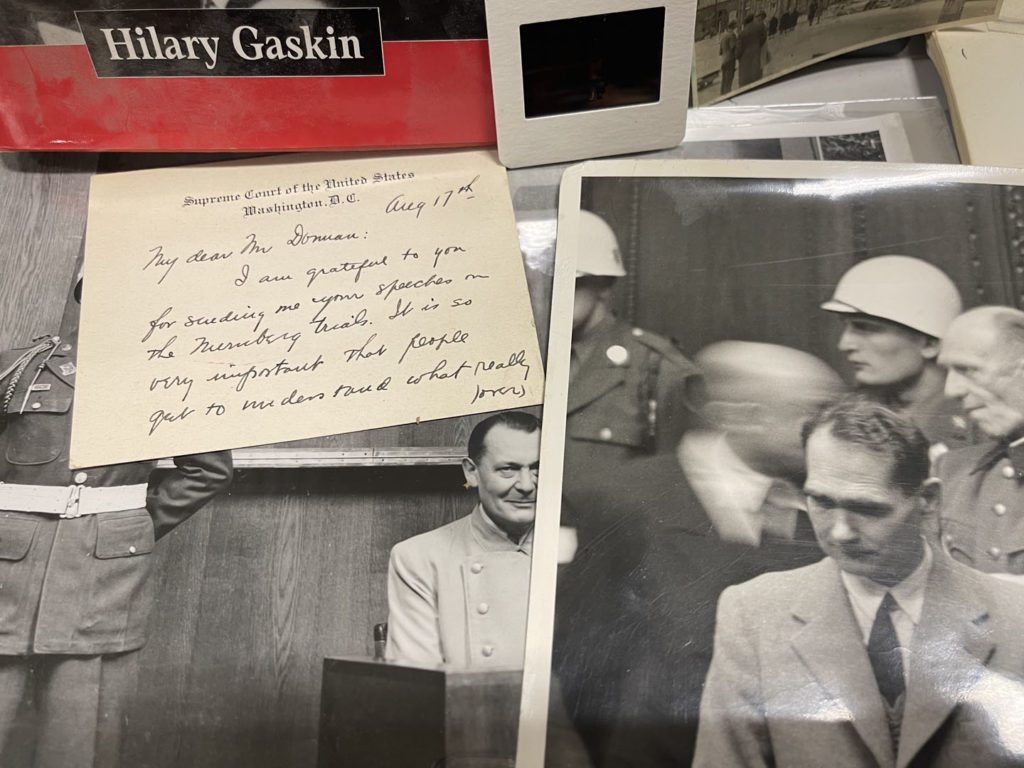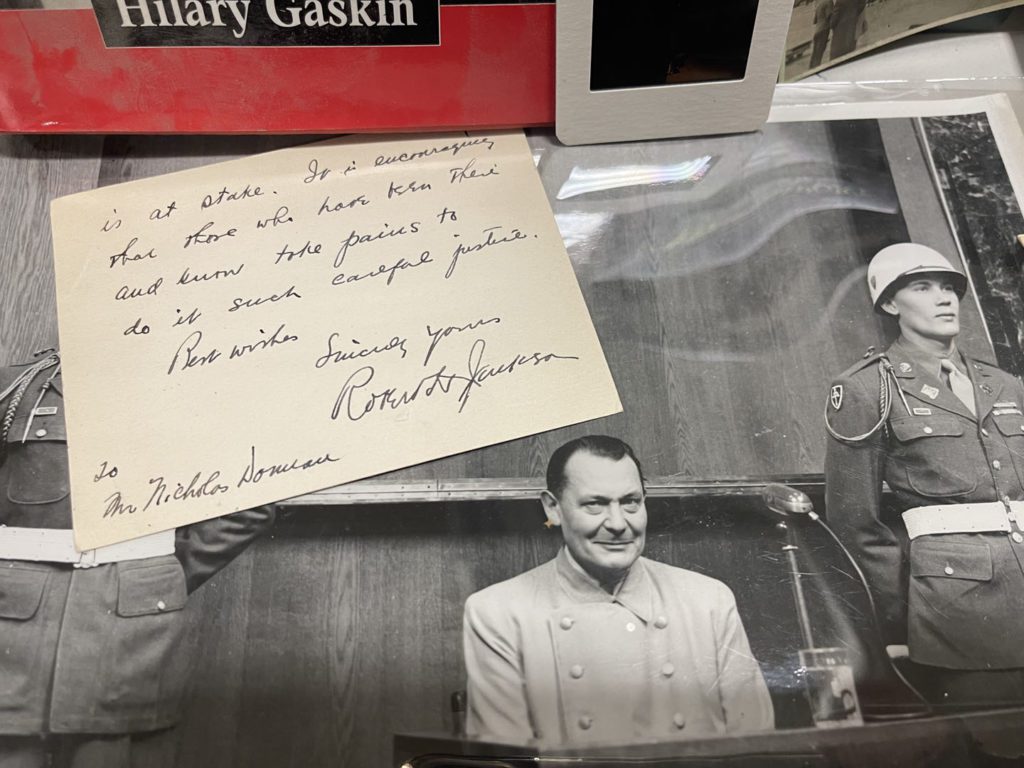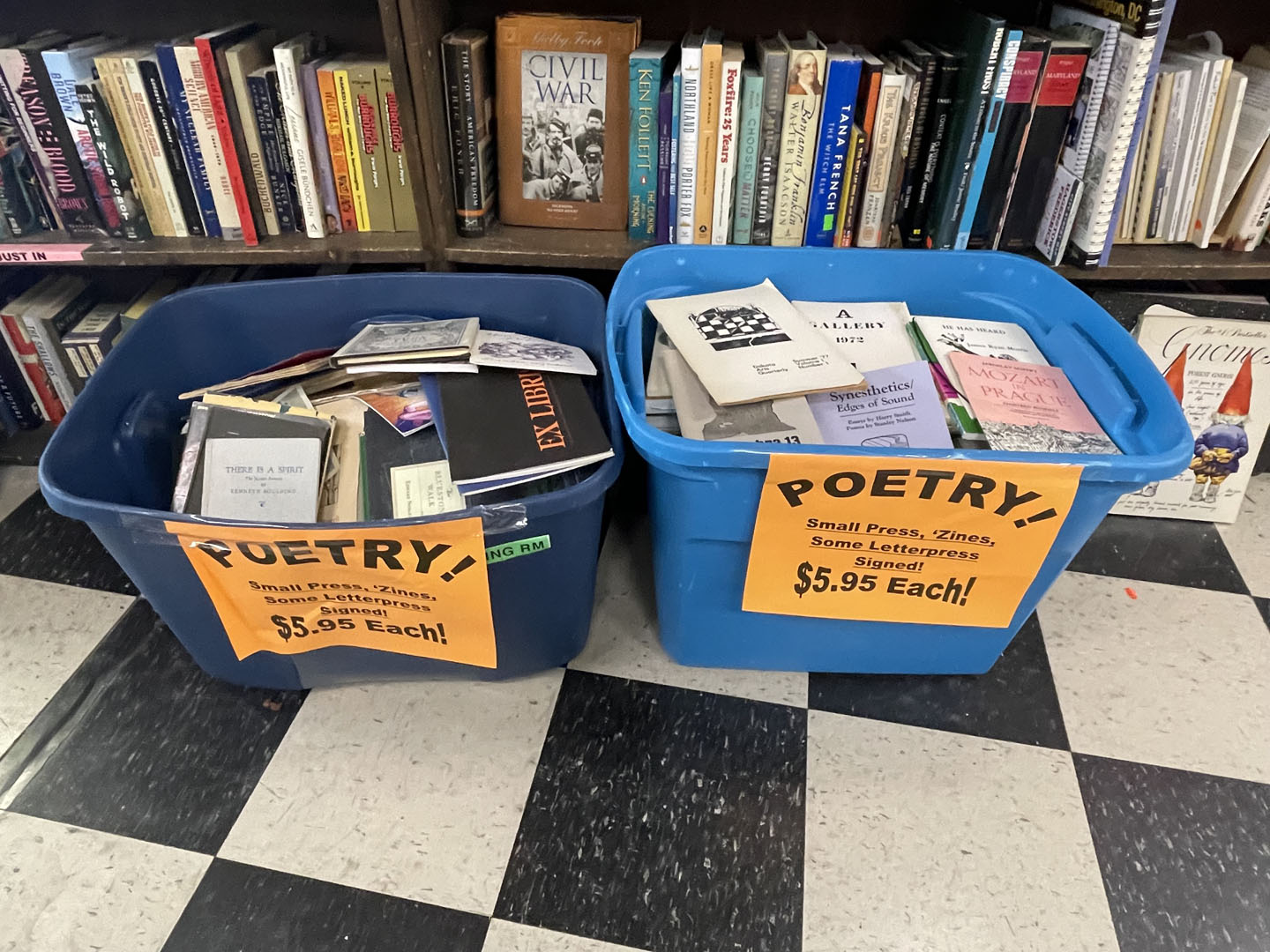
Some books sing to me
Some just sit on the shelf and stare
…* (continued at the bottom)
Too Many Moving Pieces
It is Friday morning.
Cold and dark.
The blanket of snow that fell overnight gives off a light gray glow.
When I rise, I know I will have to go out and plow.
I heard the wind howling in the night between waking dreams.
At 6 when I woke, I just laid in the dark. I wanted to return to the tumultuous dreams that had given me such a ride while I slept.
In one, a man came running down the mountain toward my home. (There are no dwellings west of here for 10 miles.) He was carrying two large guitar cases. When he got to the flat landing of my drive, he found a 4-wheel flat metal cart. (I don’t have one here, but we have several at the warehouse.) He got on it and started rolling down the steep paved drive. ‘You’ll kill yourself,’ I thought. He disappeared around a bend, and I heard a crash.
In another, two British fellows were squeezed in next to me in a car I was driving. They had big bulky long coats or blankets. I was pushed into the door, and then my feet couldn’t find the pedals. I cried out my distress. We were heading into a construction zone. My foot found the brake just in time. We came to a stop right before a large yellow bulldozer. One of them handed me a little gold coin held by its edges between his forefinger and thumb. I took it and put it in the cupholder in the door. It was filled with gold coins.
There were other dreams—sadly gone now.
Dawn is lighting the world outside. There are 4-6 inches of snow, I think. Birds are landing on the porch roof below my bedroom window. Nuthatches, chickadees, titmice… Where do they sleep in a blowing snowstorm?
I’m sore from all the work yesterday. I did some heavy culling for Books by the Foot orders. Travel, cooking, architecture and design.
I met with my son, and we brainstormed the unification of foreign language books with the countries where those languages are spoken. We experimented with it early in COVID at the Gaithersburg store, and it has seemed to help. It is hard to get people to go to the foreign language sections. This kind of forces them to. Indeed, when I was on my knees pulling coffee-table travel books in the Germany section, 20% or more of the books about cities and regions were in German.
Plus, it is good to shake things up.
I get frustrated at all the junk books I find when I’m doing this. But then I need to force myself to remember that the good books have sold and these are the dregs.
I also find so many mis-shelved books. I make stacks and review them with whoever is on duty.
“King Arthur and Robin Hood will sell much better in legends and folklore than in British history. Plus, English history is always overcrowded, so anything that can go elsewhere helps.”
“Goethe in Russia in Russia?”
“Jean Genet in France?”
But I can’t complain. All three stores had wonderful Decembers. Frederick’s December was the best total of any month since 2003! All three stores had solid double-digit growth in 2021 over 2020 AND 2019.
What could I possibly complain about?
Well, there is the future. How do we sustain growth?
I need to brainstorm ways to get some more percentage points. It’s part of the “game.” It is also my job.
At the warehouse, we have a new problem. Just a month ago, I was worrying that we couldn’t squeeze another book in the building. Now big spaces are opening up throughout the building. The buying has dropped off at the stores severely. Omicron? The holidays? Or are all the books… GONE?!
After the workout at the store, I went to the accountant where my old friend Peggy notarized the 5-year lease extension for the Hagerstown store. I’ve been going to that converted residential house since 1982, I think.
Then back to the warehouse where we are processing the 35 pallets of remainders that arrived last week. That’s physically hard work as well. At least I do not have to do that.
Then carts for me.
We picked up one of the vans from a nearby repair place. The bill for two oil changes and one set of wiper blades was $320!! COVID… Before COVID, they were about $60.
When I got home, it was dark. I brought over some cartloads of firewood from the “Barn.” Then for some inexplicable reason, I decided to wander into the black forest to drag in deadfalls.** That was certainly rugged exercise. I used a flashlight to locate them. Then I would grasp the ends of however many I could handle and trudge along the uneven forest floor toward the pool of light surrounding the house. Why? Seemed like an interesting thing to do at the time.
(I wrote more about this at the bottom.**)
It is light enough now.
Time to bundle up and go out and plow. Serendipitously, the ATV was dropped off from repair Wednesday night. They’d had the plow, which I carelessly busted in October. The ATV stopped starting in early November. Perfect timing. (If it works.)
Face of Evil
It is very gratifying when bits of history land here and we are able to “rescue” them.
These two volumes of history of the Nuremberg Trials came loaded.
The most important bit was a long note from Supreme Court Justice Robert Jackson.
Harry Truman appointed Justice Jackson to be the chief prosecutor of the Nazi hierarchy.
The books likely belonged to Nicholas Doman who was a US Prosecutor at the trials. He was the first to interview Rudolf Hess, a top Nazi, who had flown to England for obscure reasons that are one of the big mysteries of WW2. Some theories are that he was a bit deranged from syphilis. He was captured and spent 4 years as a prisoner in England.
The most striking artifact is the 8×10 photo centering on Hermann Goering. Goering was convicted and sentenced to be hanged. He thought that dishonorable and asked to be shot. That was refused. Somehow, cyanide capsules were smuggled in to him, and he committed suicide.
The face of a man responsible for killing millions is haunting. I will see this photo in my dreams.
… nightmares.
Among the books I picked up from my colleague Brian Cassidy last week were thousands of books of obscure poetry and poetry ‘zines.
Certainly more a burden than a blessing.
Still, I went through each—just in case.
They certainly wouldn’t do well online. We’d lose thousands of dollars listing them.
Still, they were poets’ work. Some were done in letterpress. Many were signed.
What to do?
I came up with a nuclear option.
I insisted the managers make tubs full of them and display them prominently at the very front—where we stock the hot new arrivals are staged. It is the active section in the stores.
From there, they are on their own.
If you’re a poetry fan, go to any of the stores and root through. Maybe you will find things I missed. I hope so.
I did my due diligence.
Most books have hundreds of moving parts.
Millions of books have millions of moving parts.
What appears infinite reaches “finity” eventually.
The huge warehouse building does have borders. Long high concrete walls.
My old mentor used to joke to new employees when his little bookshop’s shelves were filled, “Go back in the storeroom and get the shelf-stretcher.”
He would also quip to newbies,” Count the books before you close up tonight.”
He was such a kind generous soul with people—employees, strangers, customers… But in his business dealings, he was very impecunious.
Moving parts… Wonder Book has evolved to the point where so much runs on inertia. Things take care of themselves. If someone is out, there is someone to step into their place.
But sometimes things unravel. Here. Then there. There. And there.
“We are out of empty carts!”
Like that is my fault?
Still, I’m the one to rush out and search the three-acre building to find where they are hiding and figure out how to get them empty. So, that day I became a cart emptier.
I mentioned in the last story we had a lot of people out with “COVID Contact” in recent weeks. This hit the Books by the Foot department hardest. There was no one here left who knew what to do with certain aspects. Over the weekend, there were over 70 email messages on the BBTF computer. Though we had put a robotic reply that we couldn’t respond right away and we were blessed that this happened over a holiday weekend—which provided a great excuse—I still thought we should give people the courtesy of a reply. I volunteered to do it.
Most were inquiries like “Where’s my order?” Or “How much would 17 linear feet of pink-spined books cost?” (Do we even have that many?) I quickly became aware I was an unqualified Customer Service Rep. My answer for most of them would be, “I don’t know. Can you wait…” (We didn’t know when people would return.)
But you can’t say things that bluntly. I did a couple dozen and then begged off.
Fortunately, a couple Books by the Foot’s people’s “parameters” were met quickly, and they returned.
Still, it is frightening to see how vulnerable something that seemed so layered and stable could be.
This is a very short blog.
The plowing.
Meetings.
Unavoidable duties.
I got my Visa to Egypt. They wanted to know the dates of my last visit. I was there in 2006 or 2007 with my old friend Barbara Mertz (PhD in Egyptology. AKA Elizabeth Peters/Barbara Michaels.)
How could I find those dates? Where is that expired passport?
I searched old emails trying keywords and, sure enough, I was there January 25-February 3, 2006!
Now the only hurdle will be a negative COVID test. If I pass that, I’ll be off before too long… Inshallah…
Here’s a link to bonus blog. It was originally published in 2017—it is a very early one. It was updated last year just in case we couldn’t publish for some reason.
“My Mom Used to Say the Difference Between a Collector and a Hoarder Was…”
Warning. Poems below:
1/6/22
Some books sing to me
Some just sit on the shelf and stare
But every book deserves a look
and I give every one I’m entrusted with
the best attention I am able
If I can save its soul
perhaps some of mine gains merit.
Ah, but those that sing
There combines love and duty
And they become mine
Loyal and true
And I give them adoration and shelter
We will remain together forever
Well, forever for me is finite
They are immortal
Barring misadventure they will abide
Books, they abide
Sing to me my friends
I am a lover
and a boon companion
1/4/22
Dragging the Deadfalls In
A cold winter’s night
In my own old winter
Black and silent
I know the wood is out there
Just beyond
the perimeter of the house lights
I don’t need the scraps
fit only to start or brighten a fire
But I’ve seen where they fell
in the daylight
nestled in the brown dry leaf blanket
But in winter I leave home
and return in blackness
I get a light and walk to the edge
where the dark begins
and then extends forever
up the mountain and into the forest deep
The torch shows the fallen
I step to them
I gather three in my hands and arm
and drag them back to the light
where home and warmth are
I rustle back to the living
from the cold dormant forest
The branches scrape and rattle
along and through the leafy floor
I drop it near the house
and head back to the dark for another
A skeletal piles with each trip
A senseless task
I could call it cleaning
Back and then scraping houseward again
There are wild things out there
Eyes might glow
Screeches might howl
I cross into the blackness again and again
Just far enough to find the fallen fuel
And then to return to brightness and safety
To the friendly creatures
who live with me in the light
and dare not go
into the wild
Scrape rattle then rustle back








As to unsellable poetry books… it has been claimed that more people write poetry than read it. If true, that explains a lot.
Yep.
Pretty easy to have 50 copies printed off for friends and family – who will be thrilled.
…lol…
Guilty as charged.
Thanks Gregory
Chuck
Dear Mr. Roberts:
In a previous post, you wondered and speculated aloud how many loyal readers you actually have. Well, who knows, but to paraphrase someone (was it my fellow New Yorker, the legendary Ed Norton?) who once bellowed, “well, we aint got much, but what we got is cherce!” I, for one, love to read about your great life’s journey, and hope you’ll keep sharing your stories with us.
Couple of reactions specific to this week’s entry and then, if you’ll indulge me, I’d like to get into stuff that’s accumulated from frequently observed threads that surfaced from time to time last year, a sort of belated year in review. Might attempt it in two installments, we’ll see.
Okay, so re the two dreams you recalled, might they be directly related to decisions that must be undertaken involving your planned warehouse expansion, or perhaps aspects of any significant changes you might be thinking about involving other sectors of the business? What you recalled appears to be loaded with symbolism I’m certain you might easily be able to reflect upon. A personal insight moment right around the corner, I say go for it!
A few months ago, it seemed you buried the lead by expressing your relief in knowing that one of your sons had expressed an interest in committing himself to assuming front and center status in your ultimate plan of succession. Succession plans in various forms involving WB or its customers, whether actualized or not, is a theme that emerges frequently in your blogs. More about that below, but for now, I’d like to propose my answer to a question you posed last year, “when does a poet not belong in the poetry section?”
I submit, “when his name is Rod McKuen.”
Again, more about this later. It will make sense, I promise. Hint: My plan is to segue from “recycling” to “plan of succession” wit the assistance of Mr. McKuen, God rest his soul and his uncompleted plan for succession.
Before I get into those two main topics, back to this current blog.
The Nuremberg Trial find is nothing short of amazing. Perhaps you might consider displaying that material in one of your Frederick display cases until sold?
The question of “how do we sustain growth,” I believe, is the number one challenge that you and your successor(s) will ever have to deal with going forward. In my opinion, you’ve pretty much done the lion’s share of work needed to upgrade all of your stores: they’re clean, inviting, now very well lit, always stocked with interesting finds, and almost uniformly staffed by cool and courteous folks. Of course, there’s always room for tweaking here and there, and you have to stay on top of that. Your 40 years of sweat equity has provided a solid core that I hope will guide you against making large scale changes to the stores themselves. What would keep me awake at night involves attempting to understand who the customers of today are. What the heck do they want anyway?Contemplating the customers of the future would seem even more daunting. Are the current youngish folks in fact demonstrating less regard for much of anything that predates their birth period? Of course, every generation wants to get on with things, but the rate at which we’re turning the dirt on cultures past, in my view, is proceeding at a faster pace than previously. Couple technological gains with deliberate, sometimes politically motivated attempts to cast history in an often undeserved negative light, and it’s no wonder younger people might be even more open to stuff that has more immediate shelf life expiration than previously. The challenge then becomes, how do you keep tabs on what the customer wants in the here and now while staying mindful that you cannot rest on today’s evaluation, tomorrow’s changes will likely occur more quickly than in the past.
Then there’s the question of how to increase foot traffic. A visit to your store in G inevitably gets me to the corner of Shady Grove and Rockville Pike. Clearly, that is the center point of town. Wouldn’t it be great if somehow, someway WB’s presence could be felt at that location? In my opinion, too few of the thousands of people who pass through that intersection are even aware of the fact that they have right in their midst a branch of one of the nation’s finest used book stores? Stevie didn’t say that, USA Today said it (although I agree!)
Advertising? Highly expensive no doubt, and wasn’t it the legendary retailer John Wannamaker who mused, I realize that half of my advertising dollars is a total waste, but I just can’t figure out which half. Perhaps then a plan to get a presence for the WB name at that location, even if it’s on the cheap cheap—know anyone in the area who has unused wall space?
On to conservation. If and when the current fever re the environment subsides, perhaps we’ll get back to placing actual conservation efforts front and center. Have you noticed how dirty our streets are becoming? We can overcome this because we’ve kinda done it before. Our nation’s anti-littering campaign of the sixties was, by all accounts, highly successful. We have allowed it to fall by the waste side so to speak. I’ll leave it to others to contemplate why this has occurred.
The issue of recycling, or specific to WB, whether or not to pulp, has emerged in several of your blogs. I realize you’ve spent decades in dedication to rescuing books whenever possible, and that is a wonderful thing. But frankly, it’s also good to see that you seem more and more open to allowing undonatable and unsellable books to become recycled into things we can use. (That photo of the cart full of filthy books underscored the point.) Books turning into asphalt, who knew? So like GE, WB helps bring good things to life. Please self-challenge any regrets you might have when you have to make such decisions. If anyone can be trusted on decisions regarding to pulp or not pulp, it’s you. My only hope is that you are at least covering your costs in the recycling endeavor. And by the way, your food drives are indeed just another way your are helping the community. You are certainly covering the waterfront on some things that really matter, and it’s much appreciated.
At around the time WB was founded, the “Rod McKuen moment” was rapidly winding down. You probably noticed becoming inundated with lots of his books that had been marketed as poetry.
Talk about stuff that one might be itching to send to the pulp box. The critics hated this guy. I’ll leave it to others to debate whether or not, even on the level of everyman accessibility, the McKuen written output was worthy of any merit. Having thumbed through some of the stuff, I noticed frequently that many passages would find their way into his songwriting, and I do propose that McKuen used them to construct several ballads that remain quite compelling to this day. He was also a very fine stage performer in the tradition of singers like Jacques Brel and Charles Aznavour. If you happen upon a copy of McKuen at Carnegie Hall, you might be amazed in a good way.
So here’s a guy who helped make millions for three major publishing houses (possibly helping to underwrite the efforts of “actual” poets who produced minimal sales–just sayin’), formed his own record label that had a remarkable release schedule, owned a mail-order record company that ranked third in sales behind Columbia House and RCA, was known for having one of the finest personal record collections in the world, and was a principle investor and producer of the company that became known as Laser Light—check your store shelves, you’ve got tons of this budget label’s line—you get the picture. Highly successful, raking the cash in.
And then it seems he disappeared. There were very few interviews, and in those that did exist, it often seemed apparent from his visage alone, that he was subject to crippling depressive episodes. During one interview he was filmed while standing on property he had purchased describing his plans to establish a cultural center wherein his papers and various other holdings could be studied by students of the future.
McKuen never did anything else to establish such a facility. When he died in 2015, McKuen’s survivor–himself elderly and ailing–was apparently uninterested in preserving anything of McKuen that had been housed in his vast Beverly Hills mansion. The survivor had to be persuaded to allow McKuen’s master tapes to be saved from the trash; they were apparently sent to a storage unit. I can’t recall what happened to his record collection. In the end, no fewer than seven large dumpsters were filled containing nearly all of his life’s work. (All of this is according to McKuen biography author Barry Alfonso.)
McKuen revealed the outline of a plan for succession but obviously, never followed through.
I felt somewhat saddened by the plight of the doctor’s daughter from rural Virginia, whose father built himself a beautiful library but passed without any apparent plan for succession. Her efforts to honor her father and his collection by passing it on to hands that would treat it with care were quite commendable.
I once made a cursory effort on behalf of an elderly family friend whose husband had passed to place his collection into the hands of someone—anyone—who might actually want it. The deceased fellow had been a junior engineer on the Manhattan Project so it was entirely possible that one or more of the heavyweights in the field had inscribed something, but I never checked. I made some inquiries in the Charlottesville area, but there was zero expressed interest. UVA Engineering Department never even called me back. No plan of succession, family friend saw me as “can’t deliver” and that iced the relationship.
My own family has informed me that my vast holdings will go to whoever answers the phone first and says yes. Gives me pause but really now, don’t they understand? THE VERY ACT OF COLLECTING ASSUMES THAT WE ARE BUILDING FOR A FUTURE THAT HAS NO END. Collectors like me have blotted out any notion that the ride ever stops, so asking us for a plan of succession is itself counterintuitive to what we’re doing in the first place!
Fast forward a few years. Your telephone rings, “hello, you have reached AAA Wonder Book, how may I direct your call?”
“Succession planning department, please.”
“Please hold while I connect.”
In the background, it’s Gordon Lightfoot’s Race Among the Ruins,
“If you plan to face tomorrow, do it soon.”
When you go out on those calls, please be gentle as I know you will. We just didn’t know any better and our survivors loved us so much they want to avoid the dumpsters at all cost.
Thanks for reading this, Steve Rodgers
Rod McKuen …I laughed out loud!
When
I was taking a poetry writing course w William Meredith. He had a classmate read one of his own poems. A normal occurrence. It was so bad but of course no one wanted to pan it to his face. (Something about puppies or bunnies I think)
Finally Meredith confessed it was McKuen’s work.
Pulping is almost always an easy decision. “Would anyone want these for free?”
Occasionally there’s internal debate.
I went through two more art pallets this weekend.
It was worth it. 50% pulp. 15% surprises that went online. 15% went back to Books By the Foot as nonArt books ie color, crossover subjects…20% to the stores. Many at $1.
I’ll follow up on the rest later.
Thanks for inspiring thought and ideas!
Chuck
Just following up Steve.
We do everything we can to get to the house calls we are offered. Some just don’t merit the time and transport. There’s nothing we can do.
However, we do accept and pay “something” for books brought to any of the stores.
I am always respectful of the collector and the collection. I’ve seen so many.
I know I and my books will be there someday.
“Succession plans” are certainly the key. Even if someone has to pay someone to haul them to us. Otherwise they can go the path of the Manhattan project books.
Thanks again!
Chuck
Just by way of customer feedback, I saw those bins of poetry ‘zines at your Hagerstown store today. I’d buy a bunch of them simply to read, on the chance there’s a gem in there somewhere, but not for their current price. If they don’t move, please consider lowering the price significantly; if you do, I’ll buy an armload of ’em.
I’m sure the price will go down.
They are some beautifully printed letterpress listed editions.
Many more at Frederick and Gaithersburg.
Check back later in January!
Thanks for writing!
Chuck